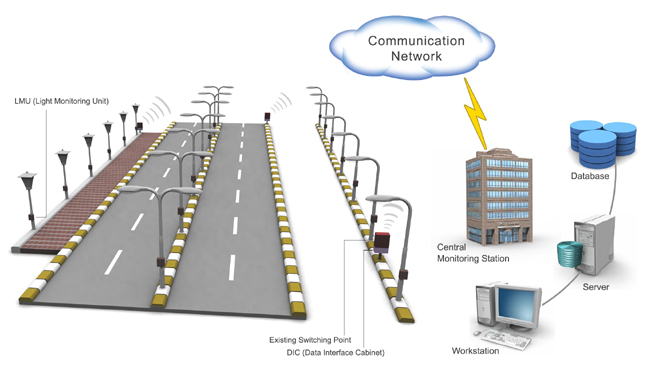

Benefits
Enablers
Reduction in Energy Used (25-30%)
Reduction in greenhouse gas
emissionsReduction in Light Pollution
Appropriate lighting scenarios can be remotely
controlled by IILS (e.g. alternate lighting patterns,
variable lighting levels / dimming options).
This includes remote switch on-off.
Preset or user-definable lighting scenarios.
of lamp defects Rapid notification
of mass street light failure
and reporting of light failures. Emergency
alert & alarm when a large number of street lights
are subject to mass failure.
Respond to emergency situations
aligned to good practice, known local safety concerns
and reflect weather conditions such as fog. In case of
road traffic accidents WSL is able to send a message
to all street lights in the vicinity to turn-on.
existing or new lighting stock
allows for rapid realisation of benefits
Messaging via wireless and power lines.
and wireless messaging for updates and fault reporting.
Centralise Remote Monitoring & Control.
equipment and lamps
below 100% and therefore extend the asset life
Terms of use | Disclaimer | sitemap